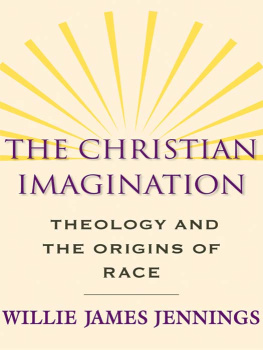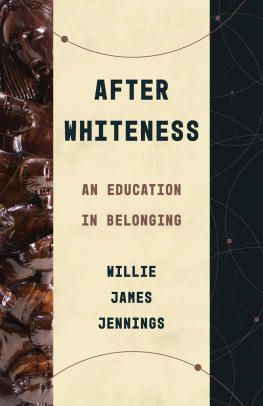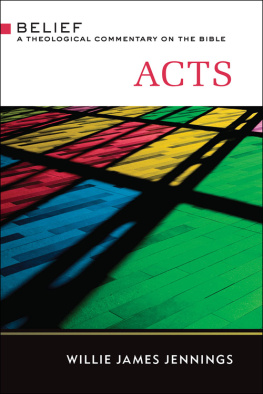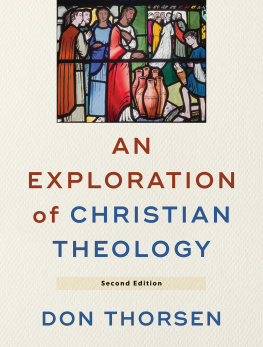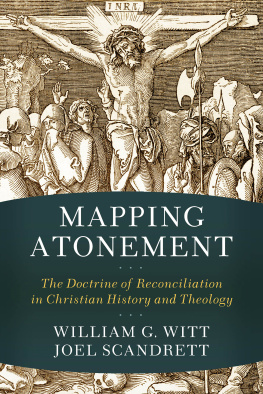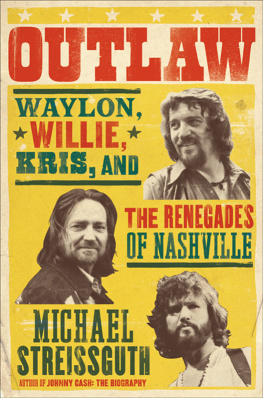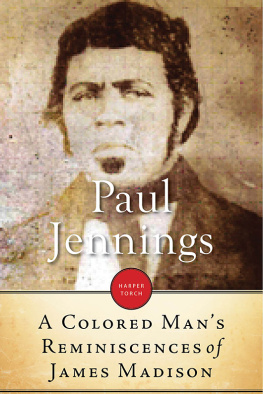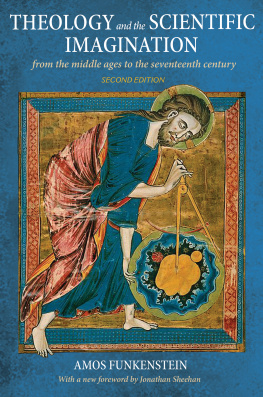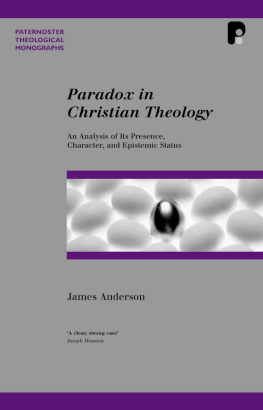Willie James Jennings - The Christian Imagination: Theology and the Origins of Race
Here you can read online Willie James Jennings - The Christian Imagination: Theology and the Origins of Race full text of the book (entire story) in english for free. Download pdf and epub, get meaning, cover and reviews about this ebook. year: 2010, publisher: Yale University Press, genre: Religion. Description of the work, (preface) as well as reviews are available. Best literature library LitArk.com created for fans of good reading and offers a wide selection of genres:
Romance novel
Science fiction
Adventure
Detective
Science
History
Home and family
Prose
Art
Politics
Computer
Non-fiction
Religion
Business
Children
Humor
Choose a favorite category and find really read worthwhile books. Enjoy immersion in the world of imagination, feel the emotions of the characters or learn something new for yourself, make an fascinating discovery.
- Book:The Christian Imagination: Theology and the Origins of Race
- Author:
- Publisher:Yale University Press
- Genre:
- Year:2010
- Rating:3 / 5
- Favourites:Add to favourites
- Your mark:
- 60
- 1
- 2
- 3
- 4
- 5
The Christian Imagination: Theology and the Origins of Race: summary, description and annotation
We offer to read an annotation, description, summary or preface (depends on what the author of the book "The Christian Imagination: Theology and the Origins of Race" wrote himself). If you haven't found the necessary information about the book — write in the comments, we will try to find it.
The Christian Imagination: Theology and the Origins of Race — read online for free the complete book (whole text) full work
Below is the text of the book, divided by pages. System saving the place of the last page read, allows you to conveniently read the book "The Christian Imagination: Theology and the Origins of Race" online for free, without having to search again every time where you left off. Put a bookmark, and you can go to the page where you finished reading at any time.
Font size:
Interval:
Bookmark:


T HE C HRISTIAN I MAGINATION
THE CHRISTIAN
IMAGINATION

Theology and the Origins of Race

Willie James Jennings
Yale
UNIVERSITY PRESS
New Haven & London
Copyright 2010 by Yale University.
All rights reserved.
This book may not be reproduced, in whole or in part, including
illustrations, in any form (beyond that copying permitted by
Sections 107 and 108 of the U.S. Copyright Law and except by
reviewers for the public press), without written permission from the publishers.
Set in Electra and Trajan types by Tseng Information Systems, Inc.,
Printed in the United States of America by Sheridan Books, Ann Arbor, Michigan.
Library of Congress Cataloging-in-Publication Data
Jennings, Willie James, 1961
The Christian imagination : theology and the origins of race / Willie James Jennings.
p. cm.
Includes bibliographical references (p.) and index.
ISBN 9780-30015211-1 (hardcover : alk. paper)
1. RaceReligious aspectsChristianity. I. Title.
BT 734.2.J46 2010
270.089dc22
2009040203
A catalogue record for this book is available from the British Library.
This paper meets the requirements of ANSI / NISO Z39.481992 (Permanence of Paper).
10 9 8 7 6 5 4 3 2 1
For Mary and Ivory,
who while they picked cotton,
feet touching the soil,
dreamed of a different world

C ONTENTS

A CKNOWLEDGMENTS
Many colleagues heard, read, and provided helpful comments on portions of this book. The first group to do so were the scholars of the Afro-Scholars consultation, Alexis Abernethy, Henry Allen, Rhae-Ann Brooker, Venessa Brown, Denise Isom, Randal Jelks, Brenda King, Michelle Loyd-Paige, A. G. Miller, Edward Miller, Isaac M. T. Mwase, Barbara Omolade, William Pannell, Yolanda Pierce, Charsie Sawyer, and Donn Charles Thomas. I am also thankful for encouraging advice from the late Dr. Kwame Bediako and Dr. Gillian Bediako. At Duke University Divinity School, I enjoy the support of a beautiful faculty. I want to thank Esther Acolaste, Emmanuel Katongole, Richard Payne, W. C. Turner, Tonya Armstrong, and Tammy Williams for the wonderful conversations that fueled the fire of this book. I am also thankful to Richard Lischer, Amy Laura Hall, Richard Payne, and Greg Jones for taking the time to read the whole manuscript, which was originally well over five hundred pages! I want to offer special thanks to the Rev. Dr. J. Kameron Carter, who continues to be a wonderful conversation partner for me as I have been working out the ideas presented here. I also want to thank the members of the De-colonial Cosmopolitanism workshop organized by the esteemed Walter Mignolo. They are Costas Douzinas, Emma Perez, Bruce Lawrence, Siba N. Grovogui, Nelson Maldonado-Torres, Richard Rosa, Oscar Guardiola-Rivera, Eunice Sahle, Erdem Denk, Ramon Grosfguel, William D. Hart, and Ebrahim Moosa. They offered helpful responses to my presentation of some of the ideas in this book. A very special word of appreciation goes to three individuals whose editorial work made this text far better than it would have been otherwise and reminded me of the deepest lesson of writing: clarity is sister to profundity. Anne Weston, formerly the editorial assistant at Duke University Divinity School, worked closely with me to meet every deadline and was an unwavering supporter of the project. I will forever sing her praises and call her blessed. Working with her and offering wonderful help were my research assistants, Sameer Yadav and Tommy Givens. I thank them for their good work. Jennifer Banks of Yale University Press is simply brilliant, capturing in almost every editorial comment exactly what I was attempting to say. Working with Jennifer has been pure joy. I am also very appreciative of the work of Lawrence Kenney, senior manuscript editor at Yale University Press. His comments on the text were always helpful.
I am extremely thankful for my family, who supported me in ways extravagant, humbling, and completely undeserved. I am deeply appreciative of my life partner, Joanne Browne Jennings, my marvelous daughters, Njeri Ariel and Safiya Eliana Simone, and my mother-in-love, Elise Browne. They are magnificent. I take great honor in being known first as Joannes husband and the father of Njeri and Safiya. Their unwavering support, probing questions, and considerable humor kept my intellectual feet from slipping and my heart from sinking. They reminded me for whom I write and aspire to be a helpful theological voice. This book is dedicated not only to them but finally to my parents, Mary and Ivory Jennings Sr., who taught me to see the world with Christian eyes.

I NTRODUCTION
Mary, my mother, taught me to respect the dirt. Like many black women from the South, she knew the earth like she knew her own soul. I came along late. I was the last of her eleven children, born not of the South but of the North, the fruit of the great migration when black folks wearied of the Jim Crow South and, in search of work, pointed their hopes toward northern cities and replanted their lives in colder air. So I was born in Grand Rapids, Michigan, and found myself each spring with my mother, Mary, in her garden in the backyard.
There near the soil Mary deepened my understanding of her life, her history, and her hopes. My mother and my father, Ivory Jennings, were both magnificent storytellers. They told stories the way water cascades over Niagara Falls or runs down the Mississippi, stories that encompassed larger or smaller fragments of people, places, jokes, incidents, sayings, sermons, arguments, clothing, foods, meals, body parts, and prayers. I could never take in all those stories. I had to simply let them wash over me, again and again, until I was able to locate myself in the stream of their historical consciousness. Yet running through their amazing stories were several themes. Like large, immovable rocks that shaped the contours of the waters flow, these themes carried the keys for understanding every story.
Foremost was Jesus. Ivory and Mary loved Jesus. To say they were devout Christians is simply too pale a descriptor. A far more accurate characterization would be, There were Ivory, Mary, and Jesus. Woven into the fabric of their lives was the God-man Jesus, who, rather than simply serving as an indicator of their orthodoxy, became the very shape of their stories. The stories of Jesus and Israel were so tightly woven into the stories my parents told of themselves, their lives in the South and in the North and then with their youngest children in the North, that it took me years to separate the biblical figures from extended family members, biblical sinners from the sinners all around us, and biblical places of pain from their places of pain. I was never able to separate biblical hopes from their real hopes. They knew the Bible, but, far more important, they knew the world through the Bible.
Font size:
Interval:
Bookmark:
Similar books «The Christian Imagination: Theology and the Origins of Race»
Look at similar books to The Christian Imagination: Theology and the Origins of Race. We have selected literature similar in name and meaning in the hope of providing readers with more options to find new, interesting, not yet read works.
Discussion, reviews of the book The Christian Imagination: Theology and the Origins of Race and just readers' own opinions. Leave your comments, write what you think about the work, its meaning or the main characters. Specify what exactly you liked and what you didn't like, and why you think so.

